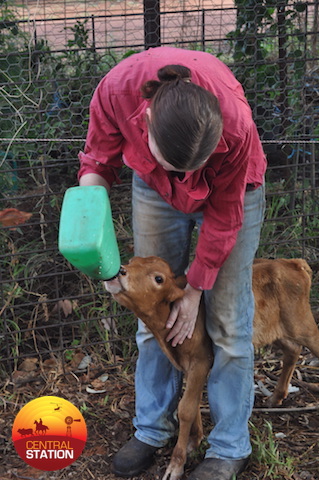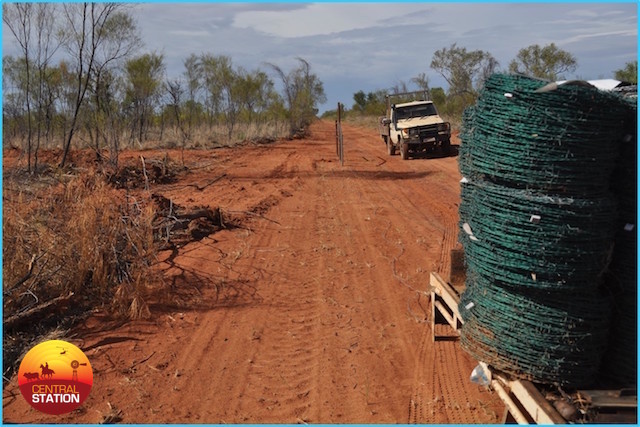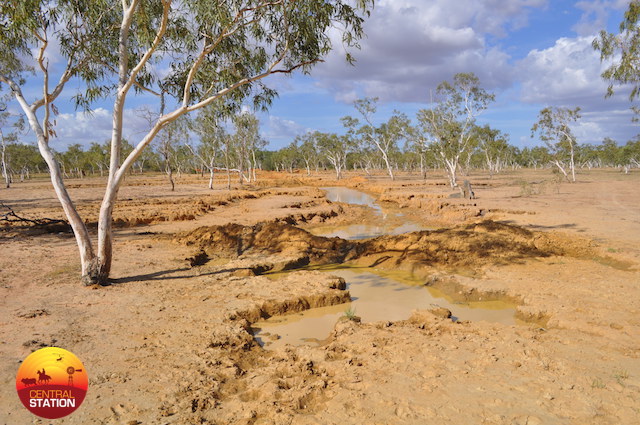When did profit become a dirty word?
Host: Dampier Downs Station
Written by Anne Marie Huey – Owner, Dampier Downs Station.
I breed cattle for slaughter. It’s the business I’m in and it’s what pays the bills. To me, this is not extraordinary I was raised on the land and from a very young age understood that my choice to eat meat means that an animal must be killed. I am not conflicted about this. To me, the quality of life an animal experiences before – and up to – the point of slaughter is much more important than the fact the animal is destined to die. As a beef producer, this is where I focus my attention and energy and whether an animal is ultimately slaughtered in Australia or overseas is irrelevant. I will sell my animals to whomever is willing to pay the highest price.
To some, this makes me a heinous monster guilty of the most despicable animal cruelty. To others, this simply makes me someone who puts dinner on the plate. Most people, if they think about it at all, would fall somewhere in the middle. I understand that society values good animal welfare and expects farmers to treat their livestock with kindness. What I don’t understand is how making a profit from providing the mainstay of many nightly meals is somehow cause for vilification. Somewhere along the way ‘profit’ has become a dirty word – at least as it relates to meat production.

 Some common (and relatively civilised) comments to be found on Facebook.
Some common (and relatively civilised) comments to be found on Facebook.
Personally, I have never lost a moment’s sleep from selling cattle onto a boat. I don’t consider it cruel, immoral, or unethical and most people I know feel exactly the same way. However, since the live export ban of 2011 and subsequent campaign to shut down the live export industry, I have come into contact with people (mostly on social media) who have a vastly different perspective.
Of those campaigning for an end to live export, the most vocal seem to be those who agitate for a vegan (or at least vegetarian) utopia. Where an individual sits on the carnivore – ‘meat is murder’ spectrum is a personal choice and I respect everyone’s right to pursue the lifestyle of their choosing. I have no desire to argue the ‘ethics’ of eating or not eating meat as in my experience this is an exercise in futility. However, I would like to take a moment to address a common assertion that is regularly thrown about in this debate.
A common refrain is that the ‘farmers’ are heartless people who don’t care if their animals suffer as long as they make a profit. I find this not just to be completely untrue, but also personally offensive. Of course my aim is to make a profit, however making money and showing compassion for livestock are not mutually exclusive outcomes. Profit, in fact, is essential for maintaining the welfare of our herd. If we don’t make money we won’t be able to afford the fodder, supplement, vaccines, and other health treatments required to keep our livestock in the best possible condition. And if we are so heartless why do we currently have 15 orphaned calves installed on our front lawn?
 Feeding poddies, it rarely makes financial sense but it is the right thing to do.
Feeding poddies, it rarely makes financial sense but it is the right thing to do.
Anyone who has been in this business for a while will tell you that raising poddies is economically unviable. Calf formula and pellets are expensive and, due to their rough start in life, poddies rarely achieve the same weight gains as their cow-reared counterparts when it comes time for sale. If we were to assess the worth of a calf purely on dollar terms, the most prudent course of action would be immediate euthanasia. The reality is, we do what we can for the ones we can save. If that means putting our hand in our pocket and spending our hard-earned ‘profit’ on yet another bag of formula, then so be it. It’s all part of our obligation to the animals in our care.
Emotions aside, let’s look at this from a purely commercial perspective. As stated earlier, we are running a business and, like every other business person I know, work hard to make a profit. I honestly can’t accept that this is an offensive concept.
Without profit there is no investment. A key part to growing any business is re-investing ‘profits’ in critical areas. Where to invest will differ for individual enterprises but for us, right now, it is all about infrastructure. Investing in new fences and waters will allow us to have much better control of our herd. This will in turn allow us to implement targeted management practices that will increase our productivity and improve the welfare of our cattle.
 New infrastructure allows for better, more targeted herd management. This results in better animal welfare and better environmental outcomes.
New infrastructure allows for better, more targeted herd management. This results in better animal welfare and better environmental outcomes.
Importantly, it will also allow us to have more control as to how our animals utilise the landscape. You see, as beef producers we are not just responsible for the cattle we raise but are also custodians of vast tracts of country. As a custodian I take my responsibility to look after this country very seriously and consider environmental management a core part of our business. I fully intend to leave this country in better condition than which we found it. However, without profit, there is no money to fence out fragile areas or to implement weed and feral animal control.
 In-channel earth works to prevent erosion. This project also required fencing and the installation of a new water point. None of this is possible if we can’t make a profit.
In-channel earth works to prevent erosion. This project also required fencing and the installation of a new water point. None of this is possible if we can’t make a profit.
I actually think I provide a pretty valuable service to the world and don’t accept that I should live below the poverty line and be unable to have the basic standard of living that the rest of society enjoys to do so. No-one expects those who care for our sick, keep our communities safe, or educate our children to do so for nothing, so why would they expect it of those who feed us and our neighbours? I don’t think it is unreasonable to expect to be able to fill my fridge with food I can’t produce myself, pay my bills on time, or even – God forbid – take a holiday, simply because I raise cattle for human consumption.
However, and this is an important point, I will not make a profit unless my cattle are well cared for and well treated. I get paid for kilos of beef produced. Unhappy, stressed cattle do not produce nearly as many kilos as well-treated cattle, therefore it is in my own commercial best interest to ensure that my cattle are as well cared for as possible. Cruelty has no place in animal production, either from a humane or commercial perspective.
I feel privileged to belong to a society that places such a high value on animal welfare. I am grateful that Australian standards of livestock handling, including slaughter, are amongst the highest in the world. I am also proud to be involved in live export, which is exporting these standards, along with the knowledge, training, and equipment required, to our customers.
Maintaining a profitable industry – from the Australian farm gate through to an international wet market butcher stall – is resulting in real, tangible benefits for more people and more animals both at home and overseas.
Profit – it makes our ideals possible.
